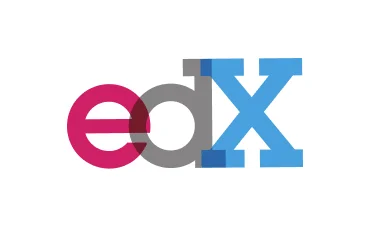When you enroll through our links, we may earn a small commission—at no extra cost to you. This helps keep our platform free and inspires us to add more value.

CISL: Sustainable Food: Production and Processing
Discover new models, processes, and approaches for achieving sustainable food systems that can equitably meet the nutritional demands of an expanding global population within planetary boundaries.

This Course Includes
 edx
edx 0 (0 reviews )
0 (0 reviews ) 8 weeks at 7-10 hours per week
8 weeks at 7-10 hours per week english
english Online - Self Paced
Online - Self Paced executive education
executive education CISL
CISL
About CISL: Sustainable Food: Production and Processing
About this CourseDuration : 8 weeks (excluding orientation) __ Global population growth is placing unprecedented strain on already-stretched modern food systems. With the added pressure of a changing climate, creaking supply chains, and greater consumer scrutiny, the need to transform these systems has become urgent. The Sustainable Food: Production and Processing online short course from the University of Cambridge Institute for Sustainability Leadership (CISL) equips you to shape resilient food systems to equitably feed the growing global population in a challenging environment. Over eight weeks online, you’ll explore the different aspects of a sustainable future food system, and the micro-, meso-, and macro-level changes required to transform the way food is produced, processed, and consumed. With guidance from expert CISL faculty, you’ll discover new business models, technologies, and processes for embedding sustainability into food supply chains, and build practical strategies for leading this transformation in your own organisation or sector. By the end of the course, you’ll have consolidated your learnings through a number of peer-centred live sessions and forum discussions, and will have developed your own Personal Action Plan for leading sustainability initiatives in your context. This course will benefit individuals working at every stage of global or local food systems, from the supplier to the consumer. Agricultural professionals, including commercial and small-scale farmers, ranch managers, agricultural engineers or technicians, and agronomists will gain practical tools for delivering nutritious, affordable, and sustainable food to all. Those in the manufacturing, retail, wholesale, or service sectors, such as supply chain and procurement professionals, food and beverage managers, restaurateurs, and entrepreneurs aspiring to start a sustainable business will discover scalable models for achieving resilient food systems. And analysts, policymakers, consultants, and lobbyists working in finance, marketing, and public relations will learn how to clearly articulate the case for sustainable food production, processing, and consumption. This course is certified by the United Kingdom CPD Certification Service, and may be applicable to individuals who are members of, or are associated with, UK-based professional bodies. The course has an estimated 70 hours of learning. Note: should students wish to claim CPD activity, the onus is upon them. The University of Cambridge Institute for Sustainability Leadership and GetSmarter accept no responsibility, and cannot be held responsible, for the claiming or validation of hours or points. This is your opportunity to unleash your potential for extraordinary impact. By completing a course with CISL, you'll develop the skills, confidence, and network to lead change in your sector, organisation and sphere of influence to make significant contributions to society. Extraordinary change happens when passionate and inspired individuals share a common purpose to drive meaningful impact for the collective good.
What You Will Learn?
- Discover what it’ll take to achieve a sustainable food system as you work through the weekly modules of this online short course..
- Orientation module: Welcome to your Online Campus.
- Module 1: The rapidly changing context of food.
- Module 2: A new sustainable food future.
- Module 3: New business models and approaches for sustainable food.
- Module 4: Embedding sustainability into food supply chains.
- Module 5: Innovations in sustainable food production and processing.
- Module 6: Leading transformational change in your context.
- Module 7: Developing your sustainable food Personal Action Plan.
- Module 8: Collaborating to create sustainable food systems.